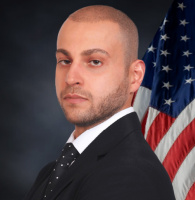South Wilmington Felony Lawyer, Illinois
James Anthony Podgorny
Divorce & Family Law, Real Estate, Felony, Car Accident, Wrongful Death
James A. Podgorny is a sole practicing attorney, which means he will be the only attorney you will deal with at the firm. You will not be shuffled amo... (more)
Khaled Issa
Criminal, DUI-DWI, Felony, White Collar Crime, Personal Injury
Orland Park, Illinois Criminal Defense Attorney
Khaled Issa is a well-versed trial attorney with more than 10 years of legal experience. Knowledgeable in many areas of law, Attorney Issa concentrate... (more)
Kristine M. Honiotes
Criminal, DUI-DWI, Juvenile Law, Traffic, Felony
Kristine Honiotes is a trial lawyer with over 12 years of experience. As a former Will County Assistant Public Defender, she defended all types of fel... (more)
FREE CONSULTATION
CONTACTFREE CONSULTATION
CONTACTJ. Mark Lukanich
Family Medical Leave Act (FMLA), Felony, Civil Rights, Contract
Status: In Good Standing Licensed: 44 Years
FREE CONSULTATION
CONTACTJames A. Payonk
Accident & Injury, Criminal, Felony, Car Accident, Wrongful Death
Status: In Good Standing
FREE CONSULTATION
CONTACTJuan Ooink
Criminal, DUI-DWI, Misdemeanor, Felony, Traffic
Status: In Good Standing Licensed: 21 Years
FREE CONSULTATION
CONTACT



